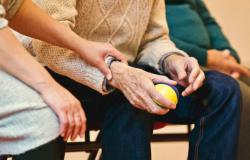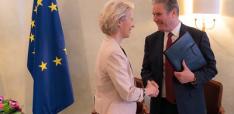Trading health? Recommendations from roundtable talks hosted by the Global Policy Institute on how trade and health policy can collaborate

David J. Hunter, Kyriaki Nanou and Heather Lodge report on how trade and health policy can collaborate.
The Global Policy Institute (GPI) at Durham University hosted and facilitated roundtable talks in July with 20 key leaders and experts from sectors and disciplines including law, economics, political science, public health, and environmental health. The aim was to agree some steps towards achieving a model of democratic governance that puts health at the heart of international trade policies. This blogpost reports on the key points of consensus and recommendations for action that emerged from two days of discussions.
Trade and investment agreements are legal instruments that are designed to support national economic policies. However, trade and health are neither mutually exclusive nor incompatible policy arenas. In fact, the need to bring health and wealth together has been a consistent message for some time, underlined most recently by the former Bank of England Chief Economist, Andy Haldane, at a speech to The Health Foundation in November 2022.
Non-communicable diseases, such as heart disease, diabetes and cancers, place an unsustainable burden on the UK’s health services. In 2017, 27% of emergency hospital admissions in England, Scotland and Wales were attributed directly to NCDs with patients increasingly presenting with co-morbidities. Unfortunately, the UK’s post-Brexit trade deals have yet to incorporate measures to address the commercial determinants of health that can lead to preventable and avoidable NCDs. In addition, international trade governance allows the multinational corporations who produce unhealthy commodities to wield extensive influence at the WTO; this results in member states weakening health protection measures through challenges of unfair trading practices.
These unique talks were organised jointly with the PETRA trade and health network at the University of Chester and held under strict Chatham House rules to preserve anonymity and encourage honest, open discussion. The talks benefitted hugely from input from Scotland and Wales where the devolved governments, especially in Wales, have often led the way in thinking about trade and health. Discussions were chaired by Emeritus Professor David Hunter, School of Government and International Affairs (SGIA) Durham University, and Senior Fellow at the GPI, and a PETRA Co-investigator, and organised by PETRA’s administrator, Heather Lodge, and Associate Professor in European Politics, SGIA and GPI, Dr Kyriaki Nanou.
Over the course of two days, discussants identified a set of PACE recommendations that cover:
Position: not being anti-trade but coming from a desire to improve health and a wish to see trade deals negotiated above party politics.
Advocacy: speaking the language of trade, quantifying potential impacts and suggesting policy solutions with efforts focussed on the formative stage of trade negotiations; building advocacy around the recognition that health is wealth, and the principle of “do no harm.”
Collaboration: linking with other groups to develop a brief for a UK trade strategy vision with three specific key asks; making an impact by informing the House of Lords International Agreements Committee on monitoring and scrutiny of public health impacts and mitigations; embedding legal training on trade issues for public health professionals; and using citizens’ juries and deliberative methods to articulate the public voice.
Evidence: moving away from justifying public health as an exception by using evidence from tools such as health impact assessments and modelling of macro-economic, health and fiscal impacts; synthesising evidence for Ministers and Civil Servants and providing guidance on policy measures that would tweak impacts.
The success of the event can be judged by the energy generated by the workshop discussions and the commitment made by participants at the close of the event to continue working together to build capacity in understanding how the negative impacts of trade policy on population health can best be addressed. In particular, the forthcoming UK general election opens up a space and window of opportunity to influence and shape policy.
The workshop ended with an agreed action agenda of potential outputs and opportunities to be seized over the short, medium and long term. These included:
- revisiting PETRA’s R&D Framework/Manifesto in the light of observations made during the workshop;
- producing input into the political manifestos in the run-up to the forthcoming UK general election expected over the next year or so;
- developing and strengthening training for trade and health specialists;
- conducting a mapping exercise of trade policy/agreements processes and culture, and producing case studies to illustrate these;
- horizon scanning to identify what is happening on trade over the next 5-10 years;
- engaging with analysts in relevant government departments to increase understanding of trade and health concerns, and to help break down silos and encourage cross-government working.
Finally, our intention is to publish articles to capture the learning from the workshop.
Prof David J. Hunter is Emeritus Professor in the School of Government and International Affairs and Senior Fellow at the Global Policy Institute at Durham University. He is also a Co-Investigator for the PETRA: prevention of non-communicable diseases using trade agreements Network.
Dr Kyriaki Nanou is Associate Professor in European Union Politics in the and Co-Director of the Global Policy Institute at Durham University.
Heather Lodge is Coordinator for the PETRA: prevention of non-communicable diseases using trade agreements Network, hosted by the University of Chester.
The work is supported the UK Prevention Research Partnership, an initiative funded by UK Research and Innovation Councils, the Department of Health and Social Care (England) and the UK devolved administrations, and leading health research charities: https://ukprp.org/
A similar version of this blogpost is also available here and is reproduced with kind permission.
Photo by Matthias Zomer


